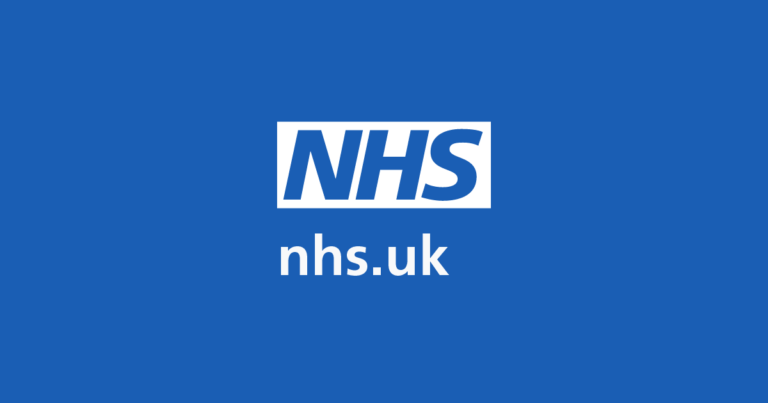There are lots of ways to maximise your health during pregnancy.
- Healthy eating and Vitamin Supplements in pregnancy.
- Eat a healthy diet and know which foods to avoid during pregnancy
- Healthy Start Vouchers
- Healthy Start is a government scheme to improve universal access to food, vitamins and supplements that promote a healthy body and pregnancy.
- If you are pregnant or have a child under four years old you might be entitled to Healthy Start vouchers to help buy some basic foods and supplements.
- Stop drinking alcohol as this will cross your placenta and can affect your baby’s physical and neurological development during pregnancy with lifelong consequences
- Folic Acid Supplements are recommended for all pregnant people planning a pregnancy. Folic acid reduces the chance of your baby having a neural tube defect, such as Spina Bifida. You should take a 400 microgram supplement of folic acid every day before becoming pregnancy and every day afterwards until you are 12 weeks pregnant. You can buy Folic Acid at your local pharmacy. You may need to take a higher dose of 5mg supplement of Folic Acid – please contact your doctor or pharmacist to confirm this.
- Vitamin D We recommend that all women take at least a 10mcg Vitamin D supplement daily while pregnant. This is to reduce the risk of bone density complications for both you and your baby. If you are black, Asian, from a minority ethnic group, aged over 35 years or with a BMI higher than 30 we would recommend you take a higher dose of 25mcg
- Stop smoking: Smoking during pregnancy has been linked to a variety of health problems for your baby; premature birth, low birth weight, Sudden Infant Death Syndrome, miscarriage and breathing problems in the first 6 months of life.
- Exercise and pelvic floor exercises
- Sleep: The safest position to go to sleep is on your side, either left or right. Research suggests that, after 28 weeks, falling asleep on your back can double the risk of stillbirth. This may be to do with the flow of blood and oxygen to the baby. Do not worry if you wake up on your back – the research looked at the position pregnant people fell asleep in, as this is the position we keep for longest. If you wake up on your back, you can just turn over and go to sleep again on your side. It can be normal to experience insomnia, weird dreams and tiredness in pregnancy too.
- Your Mental Health: coping with concerns and feelings and mental health in pregnancy. If you are concerned about your Mental Health, please either talk to your GP and talk to your Midwife. Please see our Mental Health and wellbeing
- Sex: It is safe to have sex in pregnancy and it will not harm you or your baby. There may be some pregnancy conditions that mean your midwife/Doctor will advise you to avoid sexual intercourse as part of your personalised care plan.
- Travel: consider vaccines, long journeys and flying advice
If you have a pre-existing medical condition that requires you to take medication, it is important that you consult a Doctor who can advise you on whether it is safer for you to continue this medication or review starting an alternative/ reducing /increasing your dose when you are pregnant. Please DO NOT stop taking medication without consulting a professional.
During your pregnancy you will be offered some vaccinations, you community midwife will discuss these with you during your antenatal appointments.
You will be offered both your Whooping cough and flu vaccine, these are recommended and deemed safe by robust clinical trials for all pregnant women. You will need to contact your GP to book these.
Add link - Whooping cough and pregnancy booklet (publishing.service.gov.uk)
COVID-19 vaccines are also strongly recommended in pregnancy. Please see link to FAQs produced by the Royal College of Obstetricians and Gynaecologists. COVID-19 vaccination information from breastfeeding and pregnant parents.
Once your baby is born, they may be eligible for a BCG vaccination. Please use the link for further information. https://
- Not every pregnant person will experience the same early pregnancy signs and symptoms and the severity of each symptom will differ too.
- “Morning Sickness”
- Feeling sick (nauseous) or being sick can start around 4-6 weeks of pregnancy is commonly known as “morning sickness” – although this can happen at any time of day.
- You can reduce the symptoms of morning sickness by ensuring that you get plenty of rest; eat regular, small meals; drink plenty of fluids and avoid smells that make you feel sick. You may also want to consider accu- pressure or anti-sickness medication that your GP can prescribe for you.
- If you are unable to keep any food or drink down and are vomiting frequently, please contact our Early Pregnancy Unit if you are less than 16 weeks of pregnancy. This can be a serious condition in pregnancy called hyperemesis gravidarum and requires additional support and treatment.
- Feeling tired or exhausted can be very common in pregnancy. It is important to make time to relax and look after your physical and mental wellbeing by eating a healthy diet, exercising, getting plenty of sleep and accepting offers of help from your partner, friends and family.
- Due to the pregnancy changes, you may find that your breasts become larger, tenderer, veins may become more visible and the nipples may darken. Towards the end of pregnancy, you may find your nipples leak colostrum, the first breastmilk for baby. Do not worry if you do not leak, does not impact on your ability to breastfeed after the birth. For more information on colostrum and harvesting this in the antenatal period, see our page Feeding and Caring for your baby.
- Despite the pregnancy changes in the breasts, it is important to regularly check for signs and symptoms of breast cancer. If you are concerned, please speak to your GP.
- Other symptoms of pregnancy can be increased need to urination, including during the night, constipation and increased vaginal discharge (without any other symptoms)
- Your baby’s movements: You may start to feel movements from 16 weeks of pregnancy however if this is your first baby, this can be after 20 weeks of pregnancy. Charities such as Kicks Count are a good source of information.
- Deep Vein Thrombosis (DVT): A DVT is a serious medical condition where a blood clot forms in a deep vein, commonly in the leg. If you have any symptoms of a DVT, call our Maternity Triage immediately on 01737 231 764. Symptoms of a DVT include: pain, swelling and tenderness in one leg, usually at the back of your lower leg (calf) – the pain may be worse when you bend your foot up towards your knee, a heavy ache or warm skin in the affected area, red skin, particularly at the back of your leg below the knee, shortness of breath.
 Start4life offer expert advice, videos and tips on pregnancy, birth and beyond.
Start4life offer expert advice, videos and tips on pregnancy, birth and beyond.
You can sign up to Start4Life’s weekly emails.
 Fathers in Surrey now have access to an exciting new online resource, DadPad.
Fathers in Surrey now have access to an exciting new online resource, DadPad.
The free easy-to-use online app has been developed to support dads, and particularly new fathers, to help guide them into fatherhood.
 Interested in using an App in pregnancy to get weekly updates?
Interested in using an App in pregnancy to get weekly updates?
See the app library on nhs.uk for a number of options.
